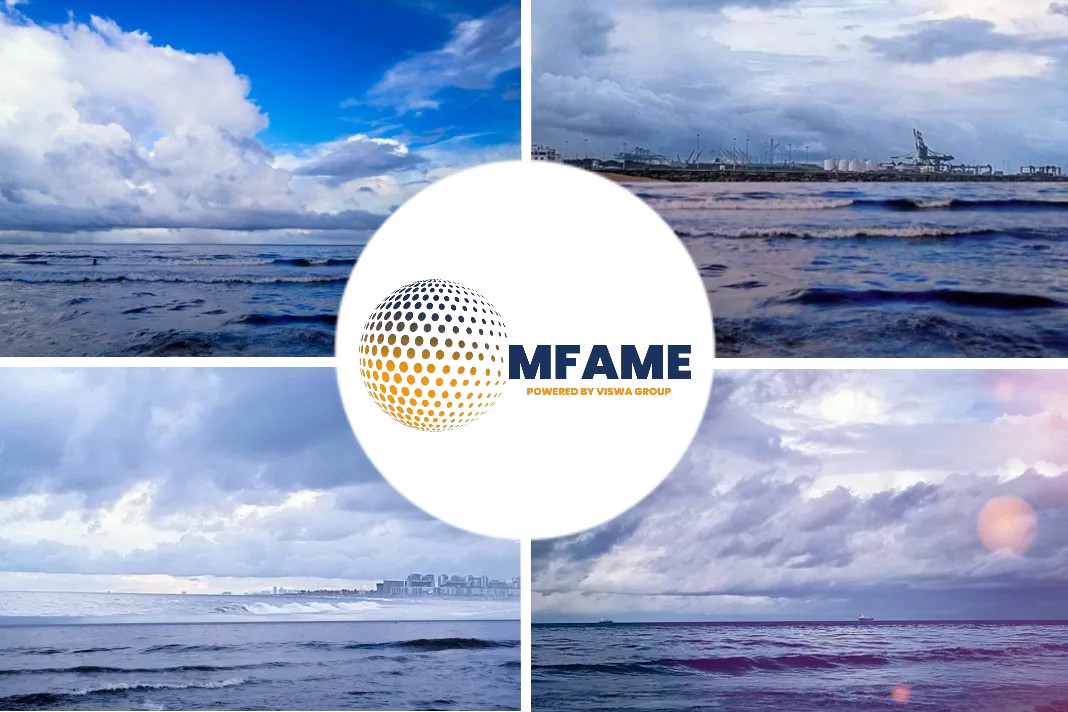
Reducing vessel resistance, commonly known as drag, can decrease the amount of energy a vessel requires to move through water – thus reducing fuel consumption and CO2 emissions, important steps in helping shipping address its decarbonisation challenges as well as manage costs, reports LR.
Drag reduction
According to Krassi Fotev, Founder, CEO and Chief Scientist of 13 Mari, technology developed by his company can produce between 3 and 5% drag reduction. This could be increased to 7%, and possibly even higher, as the technology continues to evolve.
Late in 2022, the company measured a 5.2% drag reduction in a tow channel test. The drag reduction translates 1:1 to fuel savings, so the current technology would reduce operating expenses tied to fuel by 3-5%. The judges at last year’s Captain Table competition – which is run by Young Professionals in Shipping Network Hong Kong and supported by Lloyd’s Register, were so impressed with the technology that 13 Mari was proclaimed the winner.
The solution works by installing between 15 and 30 composite elements on the hull of a vessel, without compromising it, to improve streamlining. Larger vessels will see the largest fuel and monetary savings, due to their higher drag and greater fuel use. The technology will be retrofitted on an initial vessel in April or May this year. 13 Mari has spent the last few months carrying out validation on the drag reduction and fuel savings using computational fluid dynamics (CFD) calculations and tow tank model tests.
What does the win mean?
The Captain’s Table win has helped the company accelerate securing grant awards, installation protocol validation, and manufacturer selection, together with conversations with investors. “External validation and endorsements are extremely valuable,” Fotev says.
13 Mari has also been working on an objective criteria to optimise placement of the element on the hull. New theoretical advancements in understanding the origins of drag in a turbulent fluid flow regime have led to this being possible, and validation testing is underway.
With the price of alternative fuels projected to cost more than heavy fuel oil, Fotev is convinced that owners and operators will be focused on any efficiency gains possible. “Shipowners and operators must embrace new technology if we want to see tangible results in the industry’s pursuit of decarbonisation. 13 Mari’s solution offers a low-cost approach to reducing drag, energy use and fuel consumption applicable to any large, displacement type commercial vessel.”
13 Mari is uniquely positioned to conduct sea trials with two of the top seven maritime companies in the world, targeting two different vessel types: a post-Panamax ore carrier; and a large, up to 400-meter-long container carrier that maximizes the ROI. The projected annual fuel expense savings from these two installations are $460,000 USD and between $800,000 – $1,200,000 USD respectively.
“Conversations are underway about investment with five vessel owning companies so broad support from the industry appears imminent. We are currently raising a $1M seed round to support the sea trials and the start of commercial operations in the second half of 2023. A due diligence process and report have recently been completed,” added Fotev.
What’s in a name?
A long-time scholar in physics, Fotev had the idea for 13 Mari when he was windsurfing in the Caribbean. The name comes from adding seven continents to five oceans and one atmosphere. Fotev notes that the solution is not limited to seagoing vessels and could also be applied to ground transportation, air transport, and offshore wind in the future to boost their efficiency as well.
13 Mari has a number of advisers with significant shipping industry experience supporting it. As part of the Cleantech Open in 2021, the company was assigned four advisors, three of whom decided to continue working on the project. The company also won the European Commission’s BlueInvest Seal of Investment Readiness, leading to the appointment of a fourth member to its advisory board. Since then, the advisory board has grown to eleven members, including a former Managing Director from the shipping sector, a former BP Shipping Vice President of Marine Technical, and a former Chief Innovation Officer of a large, 170-vessel maritime company experienced in new vessel builds.
Established in 2019, The Captain’s Table is a global innovation and pitch competition focused on the maritime and logistics industry. The winning start-up is awarded $30,000 USD in prize money and £25,000 in free legal advice from HFW, plus mentorship, media exposure and networking opportunities with shipping industry leaders.
This year’s Captain’s Table final took place earlier this week, and was won by Clearbot, a developer of autonomous boats. You can watch a recording of The Captain’s Table 2023 below.
Did you subscribe to our daily Newsletter?
It’s Free! Click here to Subscribe
Source: LR















